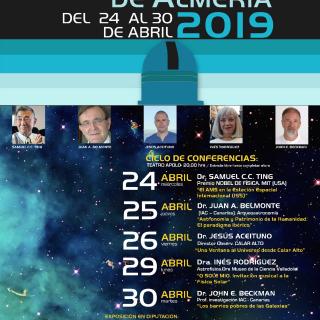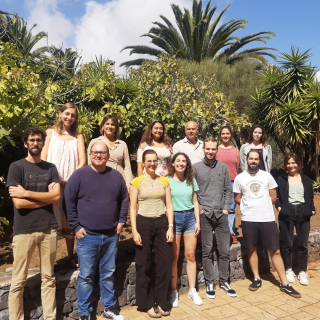Bibcode
Borlaff, A.; Eliche-Moral, M. Carmen; Beckman, J. E.; Vazdekis, A.; Lumbreras-Calle, A.; Ciambur, Bogdan C.; Pérez-González, Pablo G.; Cardiel, Nicolás; Barro, Guillermo; Cava, Antonio
Referencia bibliográfica
Astronomy and Astrophysics, Volume 615, id.A26, 26 pp.
Fecha de publicación:
7
2018
Revista
Número de citas
8
Número de citas referidas
8
Descripción
Context. Anti-truncated lenticular galaxies (Type-III S0s) present tight
scaling relations between their surface brightness photometric and
structural parameters. Although several evolutionary models have been
proposed for the formation of these structures, the observations of
Type-III S0 galaxies are usually limited to the local Universe.
Aims: We aim to compare the properties of Type-III discs in a sample of
S0 galaxies at 0.2 < z < 0.6 with those of the local Universe. In
this paper, we study the evolution of the photometric and structural
scaling relations measured in the rest-frame R-band with z and the
possible differences between the rest-frame (B - R) colours of the inner
and outer disc profiles. Methods: We make use of a sample of 14
Type-III E/S0-S0 galaxies at 0.2 < z < 0.6 from the GOODS-N field
identified and characterised in a previous paper. We study whether or
not the correlations found in local Type-III S0 galaxies were present 6
Gyr ago. We analyse the distribution of the surface brightness
characteristic parameters (Rbreak, μbreak,
hi, ho, μ0,i and μ0,o)
as a function of the stellar mass and look to see if there is a
significant change with z. We also derive their rest-frame (B - R)
colour profiles. Finally, we compare these results with the predictions
from a grid of SSP models. Results: We find that the inner and
outer scale-lengths of Type-III S0 galaxies at 0.4 < z < 0.6
follow compatible trends and scaling relations with those observed in
local S0 galaxies as a function of the break radius, Rbreak.
We do not detect any significant differences between the location of
Rbreak between z 0.6 and z 0 for a fixed stellar mass of
the object, whereas the surface brightness at the break radius
μbreak is 1.5 mag arcsec-2 dimmer in the local
Universe than at z 0.6 for a fixed stellar mass. We find no
significant differences in the (B - R) colour between the inner and
outer profiles of the Type-III S0 galaxies at 0.2 < z < 0.6. Conclusions: In contrast to Type-II (down-bending) profiles, the
anti-truncated surface brightness profiles of S0 galaxies present
compatible Rbreak values and scaling relations during the
last 6 Gyr. This result and the similarity of the colours of the inner
and outer discs point to a highly scalable and stable formation process,
probably more related to gravitational and dynamical processes than to
the evolution of stellar populations.
Proyectos relacionados

Estudios Cinemáticos, Estructurales y de Composición, de los Medios Interestelares e Intergalácticos
El objetivo básico del proyecto es investigar la evolución de las galaxias mediante el entendimiento de la interacción del medio interestelar y las estrellas. La técnica principal que utilizamos es la cinemática bidimensional de galaxias enteras observada por nuestro instrumento GHaFaS, un interferometro Fabry Perot en el telescopio William
Prof.
John E. Beckman

Huellas de la Formación de las Galaxias: Poblaciones estelares, Dinámica y Morfología
Bienvenida a la página web del g rupo de investigación Traces of Galaxy Formation. Somos un grupo de investigación amplio, diverso y muy activo cuyo objetivo principal es entender la formación de galaxias en el Universo de una manera lo más completa posible. Con el estudio detellado de las poblaciones estelares como bandera, estamos constantemente
Anna
Ferré Mateu